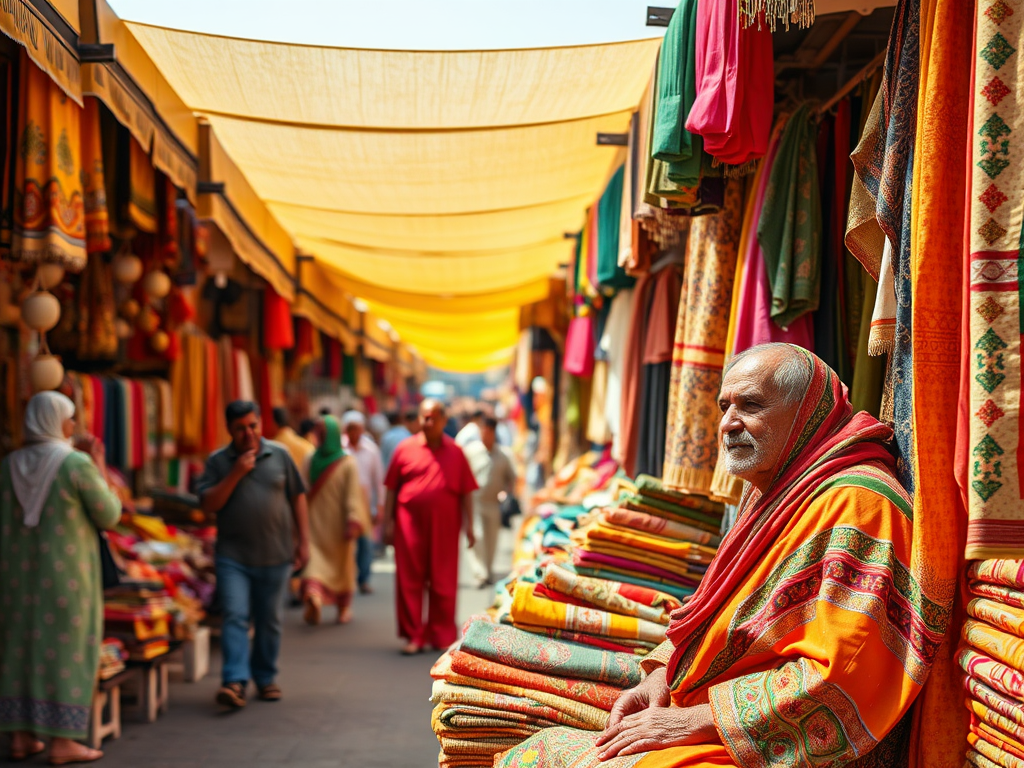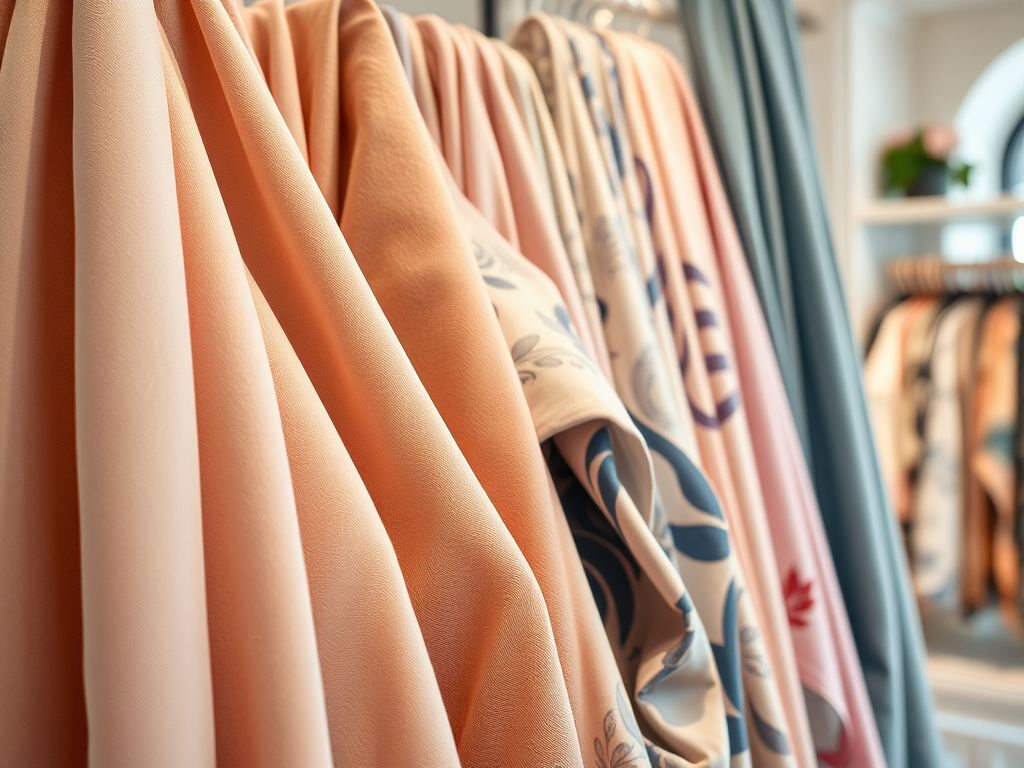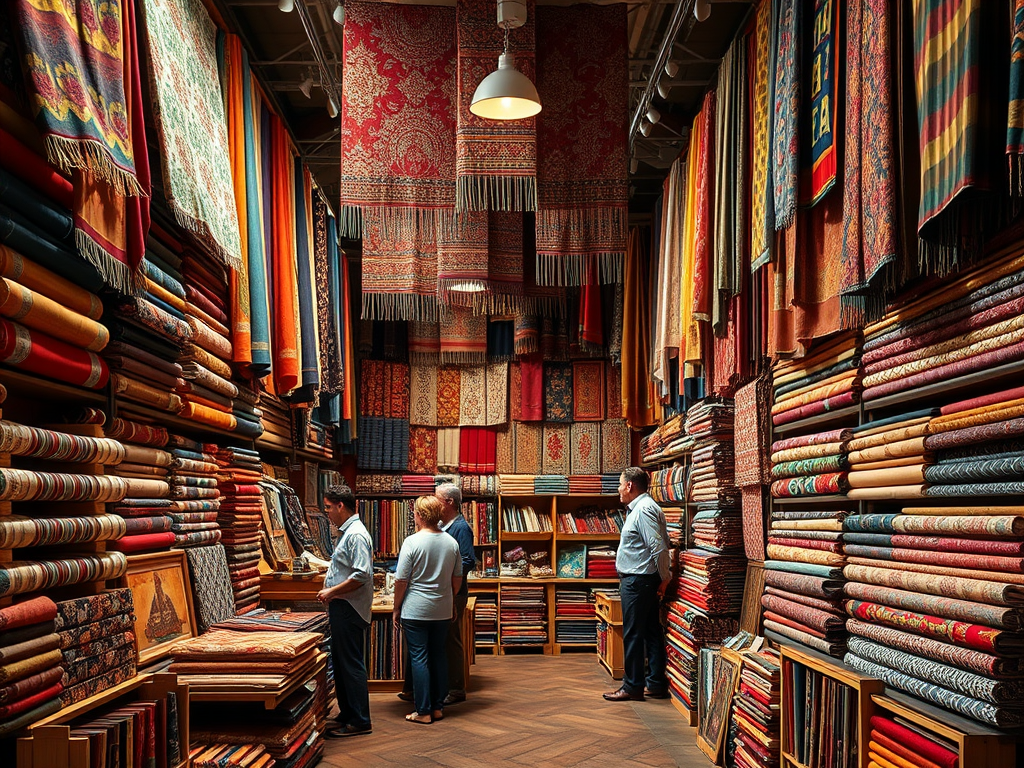Opening a specialty textile store in Dubai can be a lucrative business opportunity, given the region’s thriving fashion industry and diverse consumer base. This article will guide you through the key steps involved in establishing your own store, from conducting market research to understanding the legal requirements and setting up your store. As a vibrant city with a rich cultural heritage, Dubai offers a unique backdrop for a specialty textile business that caters to both local and international clientele.
Understanding the Market

Before diving into the setup and operational aspects, it is crucial to understand the market landscape for textiles in Dubai. Market research should be the first step in your entrepreneurial journey. Here are some essential factors to consider:
- Consumer Demand: Analyze trends in consumer preferences related to fabric types, such as cotton, silk, and linens.
- Competitors: Identify existing textile stores and their offerings, pricing strategies, and customer service levels.
- Target Audience: Determine your target customers, whether they are fashion designers, individual buyers, or businesses looking for wholesale purchases.
- Geographic Focus: Explore various neighborhoods in Dubai, assessing foot traffic and demographic compositions.
- Online Presence: Consider how an online platform can enhance your business reach and engage more customers.
Creating a Business Plan

A solid business plan is essential for outlining the vision, mission, and operational strategies of your specialty textile store. It should encompass key components such as:
- Executive Summary: Summarize your business idea and its unique selling proposition.
- Market Analysis: Incorporate findings from your market research, detailing key insights.
- Marketing Strategy: Define how you will promote your business—social media, events, or partnerships.
- Financial Projections: Provide estimates for startup costs, operational expenses, and revenue projections.
- Operational Plan: Outline logistics, supplier relationships, and inventory management.
Dubai has specific legal requirements and regulations for starting a business. To set up your specialty textile store, you need to:
- Select a Business Structure: Decide whether to establish a sole proprietorship, partnership, or LLC.
- Obtain a Trade License: Apply for a trade license through the Department of Economic Development (DED) in Dubai.
- Register Your Business Name: Choose a unique business name that aligns with your brand image.
- Secure Office Space: Find a suitable retail location that meets local zoning laws.
- Adhere to Health and Safety Regulations: Stay compliant with local health and safety standards.
Stocking Your Store
Once your legal frameworks are in place, it’s time to focus on inventory. The selection of textiles should reflect quality and variety to cater to your diverse customer base. Here are key considerations for stocking your shop:
- Diverse Fabric Options: Offer a range of textiles, from traditional Middle Eastern fabrics to contemporary designs.
- Sourcing Suppliers: Research and build relationships with suppliers who can provide high-quality materials at competitive prices.
- Product Pricing: Implement a competitive pricing strategy, keeping in mind your target market and quality of goods.
- Inventory Management: Utilize software solutions to keep track of stock levels and sales trends.
- Unique Offerings: Consider providing bespoke fabric services to attract more clients.
Marketing Your Specialty Textile Store
Effective marketing is essential to draw in customers and establish your brand presence in Dubai’s textile market. Here are some strategies to consider:
- Online Marketing: Leverage social media platforms like Instagram and Facebook to showcase your products and engage with potential customers.
- Collaborations: Partner with local designers and artisans to create exclusive fabric lines.
- In-store Events: Organize workshops or fabric showcases to attract foot traffic and build community relations.
- Promotional Offers: Use discounts or special deals during peak seasons to entice shoppers.
- Customer Loyalty Programs: Implement a loyalty scheme to encourage repeat business.
Conclusion
Opening a specialty textile store in Dubai involves careful planning and execution, but the rewards can be substantial if done correctly. By understanding the market, creating a strong business plan, adhering to legal requirements, stocking quality materials, and implementing effective marketing strategies, you can establish a successful business in one of the world’s most dynamic cities. As you embark on this entrepreneurial journey, remember to stay flexible and adapt to market changes to ensure continued success.
Frequently Asked Questions
1. What is the initial investment required to open a specialty textile store in Dubai?
The initial investment can vary significantly based on location, your store’s size, product range, and licensing fees. Generally, you should budget for at least AED 100,000 to AED 500,000.
2. Do I need local sponsorship to open a business in Dubai?
Yes, if you choose a mainland setup, a local sponsor is required unless you establish a free zone company that allows 100% foreign ownership.
3. What type of textiles sell best in Dubai?
Luxury fabrics, ethnic prints, and eco-friendly textiles are incredibly popular among locals and tourists alike, making them great options to include in your inventory.
4. Can I sell my textiles online as well?
Absolutely! Integrating an online store with your physical shop can amplify your reach and attract customers from different regions.
5. How can I ensure I stand out from competitors?
Offering unique products, personalized customer service, and niche fabric choices will help differentiate your specialty textile store from others in the market.


